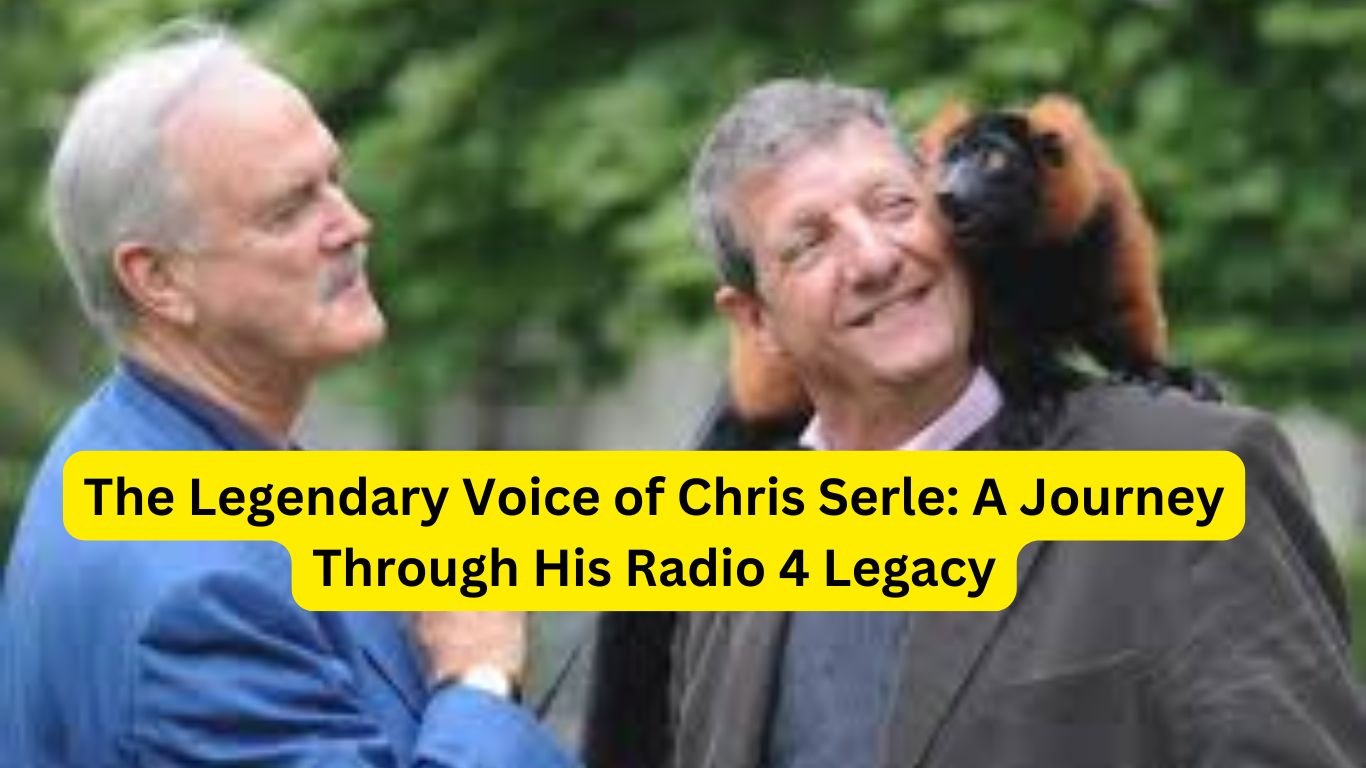Radio broadcasting has always had a special place in the heart of British culture, and among the many voices that have graced the airwaves, Chris Serle stands out as a true icon. From his television career to his legendary time on BBC Radio 4, Serle’s ability to captivate audiences with his rich voice and engaging stories remains unparalleled. This article takes a closer look at his career and legacy, particularly his contributions to Radio 4.
Who is Chris Serle?
Chris Serle is a name synonymous with British broadcasting. Born on July 13, 1943, he began his career in the media as a TV presenter before eventually transitioning to radio. With a distinctive voice and a natural talent for storytelling, Serle quickly became a beloved figure, known for his warm and engaging presence both on screen and over the airwaves.
Chris Serle’s Impact on Broadcasting
Serle’s journey in broadcasting didn’t start on Radio 4. He initially made a name for himself on television, hosting and appearing in popular programs such as “That’s Life!”, a long-running BBC show. However, it was his move to Radio 4 that solidified his legacy in British media. His ability to communicate complex ideas in an approachable manner helped him stand out as a key figure on the station.
Serle’s Contributions to Radio 4
During his time at Radio 4, Serle became associated with several popular programs. He was not just a presenter; he was a storyteller, a voice that could make listeners feel like they were part of the story. Among his best-known contributions were his work on documentaries and current affairs programs, where his thoughtful and insightful style of broadcasting shone.
Transition from Television to Radio
Although Serle had a highly successful career in television, his shift to radio allowed him to explore new opportunities. Radio offered a more intimate connection with the audience. Unlike television, which is driven by visuals, radio relies solely on sound. This made his voice and narration style the central focus, giving listeners a more personal experience. Serle thrived in this medium, quickly becoming one of the most respected voices on Radio 4.
Chris Serle’s Unique Style on Radio
What set Serle apart from other broadcasters was his distinct voice modulation and engaging storytelling. He wasn’t just reading from a script; he was creating an atmosphere, making listeners feel like they were part of the conversation. Serle’s casual yet professional tone drew people in, whether he was discussing complex political issues or lighter human-interest stories.
Broadcasting Techniques and Voice Modulation
Chris Serle mastered the art of using his voice to capture attention. Whether he was speaking softly to draw you in or using inflection to emphasize a point, Serle’s modulation techniques were second to none. His ability to shift between different tones depending on the subject matter made his programs compelling to a broad range of listeners.
Radio 4 – A Beacon of British Broadcasting
BBC Radio 4 is one of the most significant radio stations in British media history, known for its in-depth reporting, cultural programs, and current affairs. For many, Radio 4 represents the pinnacle of intellectual broadcasting. Chris Serle’s work on Radio 4 helped elevate the station’s reputation even further.
Radio 4’s Influence on British Society
Radio 4 has long been a platform where listeners could engage with news, debate, and culture. The station has played a crucial role in shaping public opinion in the UK, particularly through its flagship programs such as “Today” and “The Archers”. Serle’s contributions aligned with this tradition of thoughtful, impactful broadcasting.
Serle’s Legacy in British Radio
Chris Serle’s work has left a lasting legacy, both for his contributions to Radio 4 and for broadcasting as a whole. His unique style and approach have influenced many younger broadcasters who aim to emulate his success.
Continuing the Legacy of Chris Serle
Many modern radio programs still carry the hallmarks of Serle’s style. His emphasis on storytelling, clarity, and audience engagement continues to inspire radio and podcast producers today.
The Evolution of Radio: From Serle’s Time to Now
Radio has changed dramatically since Chris Serle’s early days. The rise of digital platforms and podcasting has shifted the landscape, yet traditional stations like Radio 4 remain vital. Serle’s relevance endures, even as technology transforms how we consume media.
The Future of Radio in the Digital Age
Can traditional radio stations like Radio 4 continue to thrive in the digital era? The answer is yes, as long as they continue to evolve and offer high-quality content. Chris Serle’s work remains a blueprint for how radio can engage and captivate audiences, even in a crowded media landscape.
Conclusion
Chris Serle is more than just a broadcaster; he is a storyteller who helped define what it means to create meaningful content on radio. His legacy on Radio 4 is a testament to his skill, passion, and dedication to his craft. As radio continues to evolve, Serle’s influence will undoubtedly remain, guiding future generations of broadcasters.
FAQs
1. What was Chris Serle’s most popular Radio 4 program?
Chris Serle is known for his contributions to several Radio 4 documentaries and current affairs programs, though his work spanned many genres.
2. Why did Chris Serle shift from television to radio?
Serle found that radio offered a more intimate and direct connection with audiences, allowing him to focus more on voice and storytelling.
3. How did Chris Serle’s broadcasting style influence others?
His unique voice modulation, engagement techniques, and focus on storytelling influenced many future broadcasters.
4. Is Chris Serle still active in broadcasting?
While Chris Serle is not as active in broadcasting today, his legacy and influence continue to be felt in both radio and television.
5. How has radio changed since Serle’s time?
The rise of digital media and podcasting has transformed the way audiences consume radio, but the principles of great broadcasting, as exemplified by Serle, remain timeless.
